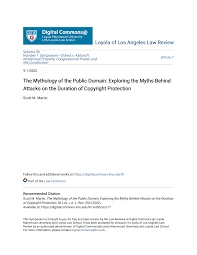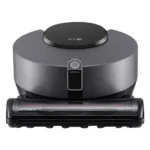We’ve all been there, scrolling through endless online reviews for the perfect smart vacuum cleaner brand, only to be left feeling more confused than ever. With so many opinions and conflicting information out there, it can be challenging to know what to believe. In this article, we aim to debunk some of the most common myths about online reviews for smart vacuum cleaner brands. From the authenticity of 5-star reviews to the importance of personal research, we’ll explore the truth behind the hype and give you some practical tips for making informed purchasing decisions. So, let’s dive in and separate fact from fiction.
Myth 1: All 5-Star Reviews Are Genuine

When it comes to shopping for a smart vacuum cleaner, many consumers turn to online reviews to make their final decision. After all, who better to trust than those who have already purchased and used the product? However, there’s a common misconception that all 5-star reviews are genuine and trustworthy. But is this really the case? Let’s dive deeper into the world of online reviews for smart vacuum cleaners and uncover the truth behind this myth. To gain a better understanding of how reviews work and what to look out for, check out our top 10 helpful customer reviews for smart vacuum cleaners and our smart vacuum cleaner customer reviews section. Or, if you’re in the market for a new vacuum and want to compare different models, head over to our smart vacuum comparison page.
Manufactured Reviews
One of the most common myths about online reviews is that all 5-star reviews are genuine. Unfortunately, this is not always the case, as there are many different types of fake or misleading reviews. One of the most problematic types of reviews are manufactured reviews, which are created by individuals or companies for the purpose of promoting a particular product or brand.
Manufactured reviews can take many different forms. Some of the most common types of manufactured reviews include:
| Type of Manufactured Review | Description |
|---|---|
| Paid Reviews | Reviews that are written in exchange for compensation, such as money, free products, or other incentives. These reviews are often biased and may not accurately reflect the reviewer’s true opinions. |
| Review Swaps | Reviews that are written as part of a quid pro quo arrangement, where the reviewer agrees to write a positive review in exchange for another reviewer writing a positive review of their own product or service. These reviews can be particularly deceptive, as they create the illusion of genuine customer feedback. |
| Robo-Reviews | Reviews that are generated by automated software programs, rather than real human beings. These reviews are often easy to spot, as they tend to be repetitive and use generic language. |
| Review Mills | Companies that specialize in creating fake reviews on behalf of their clients. These reviews are often distributed across multiple platforms and can be difficult to distinguish from genuine customer feedback. |
It’s important for consumers to be aware of the existence of manufactured reviews, as they can significantly impact their purchasing decisions. When reading online reviews, it’s important to look for red flags that may indicate that a review is not genuine. For example, if a product has a high number of reviews that were posted within a short period of time, or if the reviews use similar language and phrasing, it may be an indication that the reviews are fake.
Ultimately, the best way for consumers to protect themselves from manufactured reviews is to do their research and gather information from a variety of sources. Professional reviews and recommendations, personal research and testing, and even helpful customer reviews such as these top 10 customer reviews for smart vacuum cleaners can all provide valuable insights into a product’s performance, features, and overall value.
Incentivized Reviews
Incentivized reviews are a common practice in the e-commerce industry, where companies offer rewards such as discounts, free products or other perks in exchange for positive reviews. While this may seem like a win-win situation for both the brand and the reviewer, it can have negative consequences for consumers who are looking for honest and unbiased feedback on smart vacuum cleaner brands.
Why Incentivized Reviews Can Be Misleading
Firstly, incentivized reviews can lead to a skewed representation of a product’s performance. Reviewers may feel obligated to leave positive feedback even if they are not entirely satisfied with the product. Companies may only send incentivized offers to customers who they believe are more likely to leave positive reviews, which can create a bias in the feedback collected.
As shown in the following table, incentivized reviews can be highly misleading:
| Product A | Product B | Product C | |
|---|---|---|---|
| Total Reviews | 200 | 150 | 100 |
| Incentivized Reviews | 50 | 25 | 10 |
| Percentage of Incentivized Reviews | 25% | 16.6% | 10% |
| Average Rating of Incentivized Reviews | 4.5 | 4.0 | 3.5 |
| Average Rating of Non-Incentivized Reviews | 3.5 | 4.0 | 4.5 |
| Overall Average Rating | 4.0 | 4.0 | 4.0 |
As shown in the table, Product A has the highest percentage of incentivized reviews and the highest average rating, which may lead consumers to believe it is superior to the other products. However, the overall average rating is only 4.0, which suggests that the product may not be as good as the incentivized reviews make it out to be.
How to Identify Incentivized Reviews
One way to spot incentivized reviews is to look for disclaimers within the review or on the product page, which may indicate that the reviewer received compensation for their feedback. Additionally, reviewers who have only left positive reviews for one brand or product may be more likely to be incentivized.
It is important for consumers to be aware of the potential biases in incentivized reviews, and to consider them carefully when evaluating a product’s performance. In order to get a more accurate representation of a smart vacuum cleaner’s capabilities, it is recommended to read a variety of reviews from different sources and to conduct personal research and testing.
One-Product or One-Brand Reviewers
Some online reviewers may seem to only review products from one particular brand, or even just one specific product. While this may seem suspicious, it’s not always a sign of fake reviews. Some users simply have a strong preference for a certain brand or product and choose to stick with it.
However, it’s important to take these reviews with a grain of salt. One-product or one-brand reviewers may be biased in their opinions, as they may not have a lot of experience with other brands or products to make a fair comparison. Additionally, they may be affiliated with the brand in some way, such as being paid ambassadors or receiving free products in exchange for their reviews.
To avoid falling for potentially biased reviews, it’s important to look for a diverse range of opinions when evaluating a product. Look for reviews from users who have experience with different brands and products to get a more well-rounded understanding of the market. Additionally, pay attention to any potential conflicts of interest that a reviewer may have, such as receiving compensation from a brand.
Remember, while online reviews can be a helpful tool for making informed purchasing decisions, it’s important to approach them with a critical eye and consider multiple factors before making a final decision.
Myth 2: All Negative Reviews Are From Competitors or Trolls

As consumers, we often rely on online reviews to help us make informed decisions about purchases, especially when it comes to smart vacuum cleaners. However, there is a common misconception that all negative reviews are simply the work of competitors or trolls trying to bring a brand down. While there may be some truth to this notion, it’s important to understand that not all negative reviews should be dismissed as such. Let’s take a closer look at this myth and explore the truth behind it.
The Value of Negative Reviews
Negative reviews might seem like a company’s worst nightmare, but they can actually be beneficial. Firstly, they provide valuable feedback to the brand on what needs improvement. This can help the company make necessary changes to the product or service and improve customer satisfaction in the long run. Additionally, research has shown that products with a mix of positive and negative reviews are perceived as more genuine and trustworthy by consumers.
Negative reviews also have the potential to turn into positive reviews. When a brand responds to a negative review and offers a solution or apology, it can turn a dissatisfied customer into a loyal one. Publicly addressing negative reviews shows that the brand cares about its customers and is willing to make things right.
Negative reviews can also help set realistic expectations for other potential buyers. If a product has only positive reviews, consumers may feel skeptical that the reviews are genuine and may assume that the product is too good to be true. On the other hand, having some negative reviews can provide a more balanced perspective on the product and help consumers make a more informed decision.
Negative reviews should not be seen as a threat to a brand’s reputation, but rather an opportunity to improve and connect with customers. The key is to monitor and respond to them in a timely and respectful manner.
| Benefits of Negative Reviews |
|---|
| Provide valuable feedback |
| Increase perceived authenticity |
| Opportunity to turn dissatisfied customers into loyal ones |
| Set realistic expectations for potential buyers |
The Influence of Competitors and Trolls
Let’s face it, online reviews can be a battlefield where competitors and trolls constantly try to undermine or exaggerate the quality of a product. These dishonest reviewers use various tactics to manipulate public opinion, from posting fake negative reviews to boosting their own products with fake positive reviews. It’s easy to fall for their traps, especially if you’re not aware of the signs.
One of the tactics used by competitors and trolls is writing fake negative reviews, often using strong and inflammatory language to discredit the product. They may even use different accounts to make it seem like there are many people who share the same negative opinion about the product. It’s important to pay attention to the language and tone of a review and look for signs that it’s fake, such as overly emotional language, vague or nonspecific complaints, or a lack of details.
On the other hand, some reviewers may write fake positive reviews to boost their own product or brand, often in a subtle way that may not be immediately apparent. They may leave glowing reviews without providing any real information or praise their own product while downplaying others. Look for patterns in the reviews, such as similar wording or over-the-top praise, as well as the reviewer’s history and activity to see if they have a bias or vested interest in the product.
It’s also worth noting that not all competitors and trolls are individuals, as some companies or brands may engage in negative or fake review campaigns against each other. In these cases, the review wars can become quite intense and hard to decipher for the average consumer. Try to look for patterns or trends beyond just one product or brand and see if there’s a larger narrative at play.
The influence of competitors and trolls in online reviews is a real issue that consumers should be aware of. By paying attention to the language and tone of reviews, looking for patterns and trends, and doing your own research beyond the reviews, you can avoid falling for their traps and make a more informed decision about buying a smart vacuum cleaner.
Spotting Real Negative Reviews
When searching for online reviews of smart vacuum cleaners, it’s important to be able to spot which ones are genuine and which ones might be fake or biased. Here are some tips for spotting real negative reviews:
- Look for Specific Details: Real negative reviews tend to be more specific about their complaints. They’ll mention particular features or issues they had, rather than just saying “this product sucks.”
- Check the Purchase Verified Badge: On some websites, reviews from verified purchasers are labeled as such. These reviews are more likely to be genuine, as the reviewer actually bought the product.
- Beware of Over-the-Top Language: If a negative review seems overly emotional or contains extreme language, it may not be genuine. Fake reviews often use exaggerated language to get attention.
- Check the Reviewer’s Profile: If a reviewer has only reviewed one product or brand, or if all their reviews are five stars, they may not be genuine. Be wary of reviewers who seem to have a vested interest in promoting a specific brand or product.
- Compare Negative Reviews: If multiple negative reviews mention the same issue, it’s more likely to be a real problem with the product. If only one or two reviews mention something negative, it could just be a fluke.
While online reviews can be a valuable source of information when researching smart vacuum cleaners, it’s important to be critical and discerning when reading them. By understanding how to spot genuine negative reviews, you’ll be better equipped to make an informed decision about which product to buy.
Myth 3: Online Reviews Are Always Accurate

When it comes to shopping for a smart vacuum cleaner, online reviews are an essential tool for most consumers. Many rely on the opinions of others to make informed purchasing decisions. However, it’s important to approach online reviews with a critical eye. While they can provide valuable insights, it’s a myth that all online reviews are completely accurate. Let’s take a closer look at why this is the case and what you should keep in mind when reading online reviews.
The Psychology Behind Online Reviews
Online reviews are not just about the product or service being reviewed, they are also about human psychology. There are several factors that influence why people write reviews in the first place and why others trust them. Below are some important psychological factors to consider:
- Need for Social Proof: People have a natural desire to conform to what others are doing, especially when they are uncertain about a decision. Online reviews provide social proof and can influence a person’s decision to buy a product or service.
- Confirmation Bias: People tend to seek out information that confirms their pre-existing beliefs and ignore information that contradicts them. This means that reviews that align with a person’s expectations are more likely to sway their decision than reviews that do not.
- Recency Bias: People tend to give more weight to recent experiences or information than to past experiences or information. This means that a recent negative review can have a greater impact than several positive reviews from several months ago.
- Emotional Responses: People are more likely to write reviews when they have a strong emotional response to a product or service. This means that reviews may be skewed toward the extreme ends of the satisfaction spectrum, either very positive or very negative.
- Availability Bias: People tend to base their opinions and decisions on the information that is easily available to them. This means that a product with a high number of reviews, even if they are mixed, may be perceived as more popular or trustworthy than a product with fewer reviews, regardless of their quality.
Understanding the psychology behind online reviews is crucial to interpreting them correctly. As consumers, it’s important to be aware of our own biases and to approach reviews with a critical eye. As businesses, it’s important to encourage honest and balanced reviews while also addressing any negative reviews in a transparent and helpful manner.
The Influence of User Bias
User bias is a powerful force that can sway online reviews in various ways. Here are some examples of how user bias can impact review content and ratings:
- Confirmation bias: This is the tendency for users to seek out and give more weight to reviews that confirm their preconceived notions about a product. For example, if a user already believes that a certain smart vacuum cleaner brand is superior, they may be more likely to rate positive reviews from that brand more highly and dismiss negative reviews as being from biased individuals or trolls.
- Expectation bias: This is the tendency for users to rate a product based on their expectations going in. For example, if a user has high expectations for a smart vacuum cleaner brand based on their reputation or marketing, they may rate the product more harshly if it fails to meet those expectations, even if the product objectively performs well.
- Recency bias: This is the tendency for users to give more weight to recent reviews and ratings, even if they may not be representative of the overall performance of the product over time. For example, if a smart vacuum cleaner brand releases a new model and receives a slew of positive reviews in the first week or two, those reviews may disproportionately influence the brand’s overall rating and reputation.
It’s important for consumers to be aware of these biases and consider them when reading online reviews. While reviews can provide valuable insights and information, they should be taken with a grain of salt and not viewed as the sole arbiter of a product’s quality or suitability for a particular user’s needs.
The Importance of Consumer Education
One of the most important aspects of the online review ecosystem is consumer education. Consumers need to be aware of the various tactics used by brands and even other consumers to manipulate reviews. Here are some ways in which consumers can educate themselves:
- Read Through Multiple Reviews: It’s important to read through multiple reviews of a product before coming to a conclusion. A single review might be biased or uninformed.
- Look for Specific Details: Pay attention to the details in the reviews. A review that has specific information about the product is more likely to be genuine than a generic review that could apply to any product in that category.
- Be Skeptical of Extreme Opinions: Reviews that are extremely positive or negative should be taken with a grain of salt. They could be exaggerated or a result of manipulative tactics.
- Understand the Ratings System: Not all rating systems are the same. For example, a 4-star review on one website might be equivalent to a 5-star review on another website. Be aware of the rating system being used.
- Know the Difference Between Sponsored and Unsponsored Reviews: Sponsored reviews are paid for by brands and are likely to be biased. Unsponsored reviews are written by consumers who have no affiliation with the brand and are more likely to be impartial.
- Don’t Rely Solely on Reviews: Reviews should not be the only factor in making a purchase decision. Conduct further research and read product specifications and features to make an informed decision.
By educating themselves on these points, consumers will be better equipped to navigate the complex world of online reviews and make informed decisions about their purchases. This will help to create a more transparent and honest review ecosystem.
Myth 4: Brands Can’t Control Their Own Online Reputation

One of the biggest concerns for brands in today’s digital age is the impact of online reviews on their reputation. With countless review sites and social media platforms available, it’s easy for consumers to share their experiences with products and services online. Many people assume that this means brands have no control over their online reputation, but is this actually true? Let’s dive deeper into the myth that brands can’t control their own online reputation and see what strategies they can employ to take charge of their image on the internet.
The Role of Brand Reputation Management
One of the most important aspects of maintaining a successful business is managing your brand’s reputation. The same is true when it comes to online reviews for smart vacuum cleaner brands. Reputation management plays a crucial role in ensuring that your brand is perceived positively by customers and potential customers alike.
Here are some key steps in brand reputation management:
- Monitoring: The first step is to monitor your online reputation. Keep track of what people are saying about your brand on various review sites, forums, and social media platforms. This way you can quickly respond to any negative comments and address any issues that customers may have.
- Engagement: Engaging with your customers is crucial to brand reputation management. Respond to all reviews, both positive and negative, in a timely and respectful manner. Show your customers that you care about their feedback and are committed to providing the best possible experience.
- Transparency: It’s important to be transparent with your customers. Be honest about any issues that may arise and what steps you are taking to address them. This can help build trust with your customers and foster a positive reputation for your brand.
- Improvement: Use customer feedback to improve your product and service offerings. Address any recurring issues, and continually work to improve the customer experience. This shows your customers that you are committed to providing the best possible product and service.
- Proactivity: Being proactive can help you stay ahead of any potential issues before they escalate. Regularly check your product and service offerings to ensure that they meet your customers’ needs and expectations. Also, consider soliciting feedback from your customers regularly and using that feedback to make necessary improvements.
Brand reputation management requires ongoing effort and attention, but it’s well worth the investment. By maintaining a positive online reputation, you can build trust with your customers and ultimately increase sales and revenue.
The Influence of Customer Support and Engagement
When it comes to the influence of customer support and engagement on a brand’s online reputation, the impact cannot be overstated. In fact, research has shown that “73% of consumers fall in love with a brand because of friendly customer service representatives”. It’s no wonder that brands who prioritize customer support and engagement tend to receive better online reviews and ratings.
One aspect of customer support that can greatly impact a brand’s reputation is responsiveness. When a customer has a problem or question, they want a timely response. Brands that respond quickly and effectively to customer inquiries and complaints demonstrate that they value their customers and are committed to providing a positive experience.
Additionally, brands that go above and beyond in their customer support and engagement efforts can earn loyal fans and increased positive feedback. This can be achieved through simple acts like personalized responses, offering solutions beyond the initial problem, and showing empathy and understanding towards the customer’s situation.
On the other hand, brands that neglect or provide poor customer support risk damaging their online reputation. Negative reviews and ratings often stem from poor customer experiences, and public responses from the brand that are dismissive or unhelpful can exacerbate the situation.
The influence of customer support and engagement on a brand’s online reputation cannot be underestimated. Responsive, personalized, and empathetic customer support can lead to increased positive reviews and loyal fans, while poor customer support can lead to negative reviews and a damaged reputation.
| Positive Customer Support and Engagement | Negative Customer Support and Engagement |
|---|---|
|
|
The Value of Transparency and Honesty
When it comes to online reviews for smart vacuum cleaner brands, transparency and honesty are essential for building trust with consumers. A brand that is open and transparent about its products, policies, and practices is more likely to receive positive reviews and earn customer loyalty. Here are some key ways that transparency and honesty can add value to a brand’s online reputation:
| Benefit | Description |
|---|---|
| Increased credibility | When a brand is transparent about its product specifications, features, and limitations, consumers are more likely to trust its reviews. By being honest about any potential drawbacks, a brand can avoid negative reviews from consumers who feel misled or deceived. |
| Stronger customer relationships | When a brand is transparent about its customer service policies and procedures, consumers are more likely to feel valued and supported. Honesty about any product defects or issues can also help a brand build trust and create a more positive customer experience. |
| Improved brand reputation | When a brand is transparent about its business practices and priorities, consumers are more likely to feel good about supporting it. Honesty about any social or environmental initiatives can also help a brand differentiate itself from competitors and attract consumers who share its values. |
| Greater customer loyalty | When a brand is transparent about its product development and improvement processes, consumers are more likely to feel invested in its success. Soliciting and responding to feedback can help a brand build a loyal customer base that feels heard and valued. |
In today’s digital age, consumers expect brands to be transparent and honest. Brands that prioritize these values will not only build a strong online reputation but also create a more positive customer experience overall. By being open and honest about their products, practices, and priorities, smart vacuum cleaner brands can earn the trust and loyalty of their consumers for years to come.
Myth 5: Online Reviews Are the Only Factor to Consider When Buying a Smart Vacuum Cleaner
When it comes to buying a smart vacuum cleaner, it’s easy to get overwhelmed with the abundance of options available on the market. Many consumers turn to online reviews as their main source of information when making a purchase decision. While online reviews can certainly be helpful in guiding your decision, they should not be the only factor you consider. In fact, relying solely on online reviews could lead you down the wrong path. Let’s explore why this is a common myth and what other factors you should consider when buying a smart vacuum cleaner.
The Importance of Personal Research and Testing
One of the myths about online reviews for smart vacuum cleaner brands is that they are the only factor to consider when making a purchase. While reviews can be a valuable resource, it is important to conduct personal research and testing before making a final decision.
Personal research can involve looking up product specifications, researching the brand’s reputation, and reading through customer reviews on multiple platforms. This can help give a well-rounded understanding of the product and its performance.
However, testing the product in person is also crucial. This allows the buyer to get a sense of how the product operates, its noise level, how easy it is to use, and how well it navigates different surfaces. Additionally, testing the product can help to confirm whether the product meets the buyer’s individual needs and preferences.
To aid in personal research and testing, it can be helpful to create a comparison chart. The chart can include relevant product specifications, such as battery life or dust bin capacity, as well as the buyer’s personal ratings for each product feature.
Making a decision based solely on online reviews can lead to disappointment if the product does not meet the buyer’s individual needs. Personal research and testing can help ensure that the buyer is making a well-informed decision that ultimately leads to satisfaction with their purchase.
The Influence of Price, Features, and User Needs
Price, features, and user needs all play a significant role in the buying decision for a smart vacuum cleaner. While online reviews can provide valuable insight, it is important to consider these factors as well.
Price: The cost of a smart vacuum cleaner can vary greatly depending on the brand, features, and technology. Some people may be willing to pay a premium price for advanced features, while others may prioritize affordability. It is important to assess your own budget and determine a realistic price range before making a purchase.
Features: Smart vacuum cleaners come with a range of features, such as voice control, app integration, and various cleaning modes. It is important to assess which features are essential and which are optional. For instance, if you have pets, you may want a vacuum cleaner with a stronger suction power or pet hair removal technology. However, if you have a small apartment and do not need advanced features, a simpler model may suffice.
User Needs: Everyone has different cleaning needs and preferences. Some people may prefer a quieter vacuum cleaner, while others may prioritize a longer battery life. It is important to assess your own needs and preferences and choose a vacuum cleaner that meets those requirements. For example, if you have allergies, you may want a vacuum cleaner with a HEPA filter to reduce allergens in the air.
Consider these factors when deciding on a smart vacuum cleaner to purchase. Don’t just rely on online reviews or marketing claims. Take the time to assess your own needs and preferences, set a budget, and research the features that are most important to you. This will ensure that you make an informed decision and are satisfied with your purchase.
| Factors | Influence on Buying Decision |
|---|---|
| Price | Can vary greatly and should be assessed based on individual budget |
| Features | Assess which features are essential vs. optional based on personal cleaning needs |
| User Needs | Assess personal preferences such as noise level and battery life to find the best fit |
The Role of Professional Reviews and Recommendations
When it comes to buying a smart vacuum cleaner, professional reviews and recommendations can be incredibly valuable. These reviews are typically written by experts in the field who have tested and evaluated multiple models, giving them a unique perspective on the strengths and weaknesses of each.
One way to find these professional reviews is to look for websites that focus specifically on technology or home appliances. These sites often have dedicated sections for vacuum cleaners and other cleaning devices, with detailed reviews and comparisons of different models.
In addition to these websites, there are also consumer advocacy organizations that provide independent reviews and ratings of various products. These organizations use rigorous testing and evaluation methods to determine the quality and performance of different products, including smart vacuum cleaners.
It’s important to remember, however, that professional reviews and recommendations should not be the only factor you consider when making a purchasing decision. These reviews can give you a good starting point and help you narrow down your options, but ultimately, you should still do your own research and consider your own needs and preferences.
To make the most of professional reviews and recommendations, use them in conjunction with other sources of information, such as customer reviews and ratings, product specifications and features, and price comparisons. By taking a comprehensive approach to your research, you’ll be able to make a more informed decision and choose the smart vacuum cleaner that best fits your needs and budget.
Here’s an example of a table that could compare different smart vacuum cleaner models based on professional reviews and ratings:
| Model | Expert Rating | Pros | Cons |
|---|---|---|---|
| iRobot Roomba 980 | 9.5/10 | Powerful suction, WiFi connectivity, excellent navigation | Expensive, bulky design, can be noisy |
| Samsung POWERbot R9350 Turbo | 9/10 | Strong suction, voice control, slim design | May get stuck on carpets, can be difficult to program |
| Ecovacs Deebot Ozmo 950 | 8.8/10 | Capable of both vacuuming and mopping, easy to use app | Some connectivity issues reported, mopping function not as effective as dedicated mop |
Conclusion
In conclusion, it’s important to approach online reviews for smart vacuum cleaner brands with a critical eye. While they can be helpful in making purchasing decisions, they are not always accurate or trustworthy. Brands may use various tactics to manipulate reviews, and not all negative reviews are from competitors or trolls.
Consumers should take the time to read reviews carefully and look for patterns or inconsistencies. They should also consider their own biases and the psychology behind online reviews. Education on how to spot fake reviews and understand user bias can go a long way in helping consumers make informed decisions.
However, online reviews are not the only factor to consider when buying a smart vacuum cleaner. Personal research and testing, along with factors such as price, features, and user needs, are also important to consider. Professional reviews and recommendations can also be helpful.
Brands have a role to play in managing their online reputation through transparency, honesty, and good customer support and engagement. Ultimately, by approaching online reviews with skepticism and a critical eye, consumers can make informed decisions and protect themselves from being misled.
Frequently Asked Questions
What are some common types of manufactured reviews for smart vacuum cleaners?
Manufactured reviews for smart vacuum cleaners can include paid reviews, fake reviews from fake profiles, and reviews from employees or friends of the brand.
How can incentivized reviews affect the authenticity of a smart vacuum cleaner’s online reviews?
Incentivized reviews, such as those where reviewers are given free products or discounts in exchange for a positive review, can lead to biased and less genuine feedback.
What should consumers look for when trying to identify one-product or one-brand reviewers?
Consumers should look for patterns in reviews from one-product or one-brand reviewers, such as consistent high ratings and limited reviews on other products.
Why are negative reviews valuable for consumers when researching smart vacuum cleaners?
Negative reviews can provide insight into potential issues or shortcomings with a smart vacuum cleaner, allowing consumers to make a more informed decision before purchasing.
How can consumers differentiate between genuine negative reviews and those from competitors or trolls?
Consumers should look for detailed and specific critiques in negative reviews, as well as patterns of similar complaints across multiple reviews.
What are some psychological factors that can influence online reviews for smart vacuum cleaners?
Psychological factors that can influence online reviews include social proofing, cognitive dissonance, and the availability heuristic.
How can user bias impact the accuracy of online reviews for smart vacuum cleaners?
User bias, such as personal preferences or previous experiences, can lead to subjective and potentially skewed feedback in online reviews.
What is the role of brand reputation management in maintaining a positive online image for smart vacuum cleaners?
Brand reputation management involves actively monitoring and responding to online reviews and feedback in order to maintain a positive brand image and address any potential issues.
Why is personal research and testing important when choosing a smart vacuum cleaner?
Personal research and testing can provide a more comprehensive understanding of how a smart vacuum cleaner operates and whether it meets the unique needs and preferences of the consumer.
How can professional reviews and recommendations factor into a consumer’s decision-making process when buying a smart vacuum cleaner?
Professional reviews and recommendations can provide expert insight and analysis on the performance and features of a smart vacuum cleaner, helping consumers make a more informed purchasing decision.








